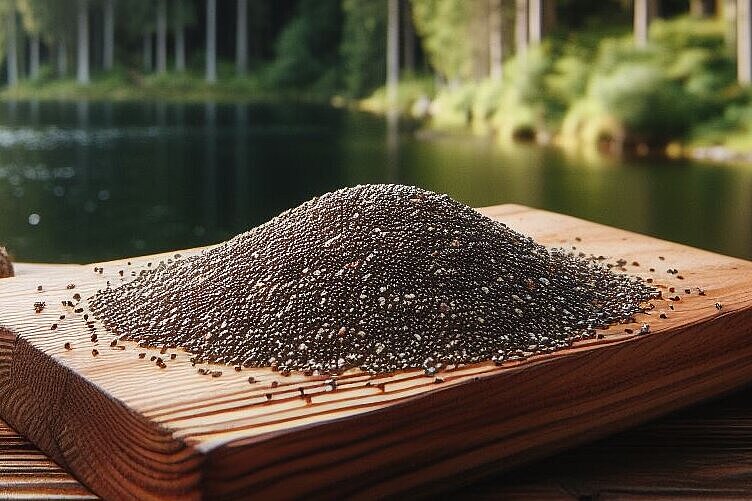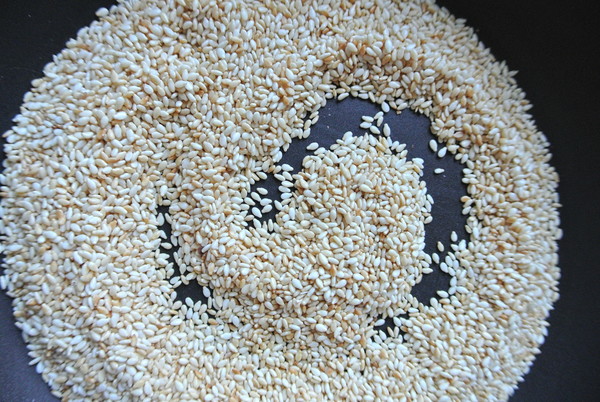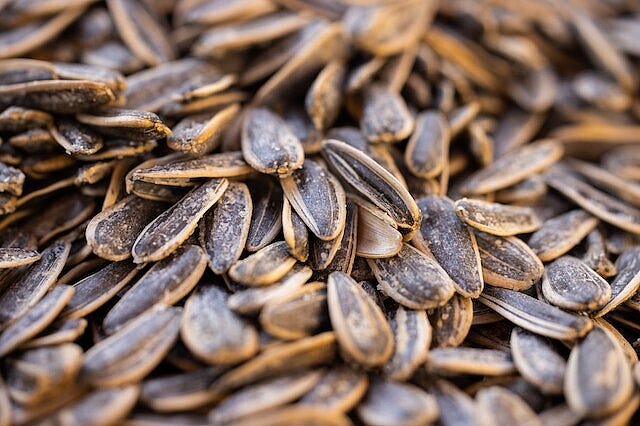Linseed

Linseeds are small seeds that come from the flax plant. They have been used as food and medicine for thousands of years. But are they also suitable for dogs? In this article you will find out what flaxseed is, what the advantages and disadvantages are and how you can feed it to your dog.
What are linseeds?
Linseeds are the seeds of the flax plant (Linum usitatissimum), which is primarily known for its fibers. The fibers are processed into linen fabric, which is used for clothing or bedding. The seeds contain many valuable ingredients, such as
- Omega-3 fatty acids: These unsaturated fatty acids have an anti-inflammatory effect and can support the cardiovascular system.
- Dietary fiber: These plant fibers promote digestion and can regulate blood sugar levels.
- Lignans: These plant-based substances have an antioxidant effect and can strengthen the immune system.
- Proteins: These proteins provide important building blocks for the body and can increase the feeling of satiety.
What are the benefits of linseed for dogs?
Flaxseed can also be healthy for dogs if fed in moderation. For example, they can help with
- Skin problems: The omega-3 fatty acids in flaxseed can soothe dry or itchy skin and make the coat shiny.
- Digestive problems: The fiber in flaxseed can prevent or treat constipation or diarrhea. They can also help to remove hairballs from the gastrointestinal tract.
- Weight management : The fiber and protein in flaxseed can reduce feelings of hunger and reduce calorie intake.
- Immune system : The lignans and antioxidants in flaxseed can fight free radicals and strengthen the immune system.
What are the disadvantages of linseed for dogs?
Flaxseed is not suitable for every dog. They can also have some disadvantages or risks, such as
- Allergies: some dogs are allergic to flaxseed or other components of the flax plant. This can manifest itself as a skin rash, itching or breathing difficulties.
- Blood clotting: Linseed contains a substance called cyanogenic glycoside, which in high doses can lead to reduced blood clotting. This can be particularly dangerous in dogs with blood clotting disorders or during operations.
- Hormone balance: Linseed contains phytoestrogens, which can have a hormonal effect. This can be particularly problematic in pregnant or lactating bitches or in dogs with hormonal disorders such as hypothyroidism or diabetes.
How do you feed flaxseed to dogs?
If you want to feed your dog flaxseed, you should bear a few points in mind:
- Amount: Don't overdo it with the amount of flaxseed. One teaspoon per day is sufficient for a medium-sized dog. Too much linseed can lead to digestive problems or nutritional deficiencies.
- Preparation: Grind the linseed with a blender or coffee grinder before feeding. Whole seeds are often excreted undigested and have no effect. You can also buy ready-made linseed oil that already contains crushed seeds.
If you notice any signs of hypersensitivity or poisoning in your dog, you should see your vet immediately. We are not a substitute for a vet, but we try to be as accurate as possible. Every dog reacts differently and we recommend you get a second opinion or consult your vet if in doubt.
Stay healthy and take good care of your four-legged friend!😊
Similar to Linseed
Chia seeds have many positive properties for your dog's health. Here are some of them: They aid digestion by promoting intestinal flora and preventing constipation. They also bind water and swell...
Hemp is one of the oldest cultivated plants in the world and was used for various purposes thousands of years ago. It belongs to the cannabis plant family, which produces different varieties....
Sesame is one of the oldest cultivated plants in the world and originally comes from India. Today it is mainly cultivated in tropical and subtropical regions. The sesame plant produces small, oval...
Sunflower seeds contain many valuable nutrients that are important for your dog's health. These include: Protein: Sunflower seeds are a good plant-based source of protein, which promotes muscle...



